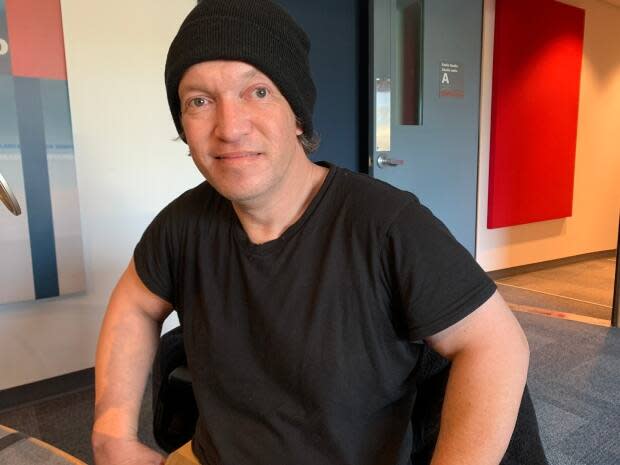St. John's theatre company launches audio description for plays


A St. John's theatre company is launching a service it hopes will make performances more accessible to people who are blind or have low levels of vision.
Paul David Power, artistic director of Power Productions, has been working to bring live audio description to productions in Newfoundland and Labrador for some time. His dream became a reality when the company began offering the service this week.
"Obviously if you are blind or you have low vision, you can't particularly see what's going on on the stage in a live performance," Power said.
"[But] you can hear it, so what audio live description in theatre does is describe to the patron exactly the action that's going on stage to couple with the dialogue that they hear."
Live audio description in theatre is much different than description in television or movies, Power said, as almost every theatre production is different in small ways. Descriptors sit in the theatre and describe the play to patrons who avail of the service through a microphone and headset.
Descriptors also don't describe emotions in performances, he added. They describe literally what is happening on stage, allowing the listener to infer what is going on through the movements they're described and the dialogue they hear.
A test run of the service happened this week with Power's play, Crippled, where he shared what an opening scene would sound like.
"All you hear is the sounds maybe of the water, of crutches dropping into the water. So the audio descriptor would say, you know, 'Character Tony … walks on stage. Character Tony walks in front of the water, looks around. Drops one crutch, drops the other," Power said.
"It sort of paints that scene, so when dialogue starts you have a complete vision of what's going on on stage the same way sighted patrons are enjoying the show."

Describing live theatre comes with special training, Power said, as it's important to focus on what's happening on stage and not to editorialize. The company is working with four describers, who say each show is a new learning experience.
"They're kind of performers in themselves," Power said.
"Dialogue may change, the space in between dialogue that they may have in the way of silence to be able to throw in some descriptive words and that sort of thing might change from night to night. So it's really a performance for them as well. To be part of a show, to know the show, and to be able to roll with the punches."
Power said reception for the service has been positive so far, and hopes other companies will avail of the service to make their shows as accessible as possible.
He said accessibility tools like description or sign language interpretation shouldn't be an afterthought, and should be part of planning as soon as a production goes into development.
"Many people think of accessibility or inclusivity, you know, at the last minute, as sort of a last idea," said Power, who lives with a disability himself.
"If you really truly want to make your show inclusive, as well as reach an audience sector that you haven't in the past, think about it when you're planning your production and include those supports in your production budget.… It's a way we all have to change our way of thinking."

 Yahoo Movies
Yahoo Movies 